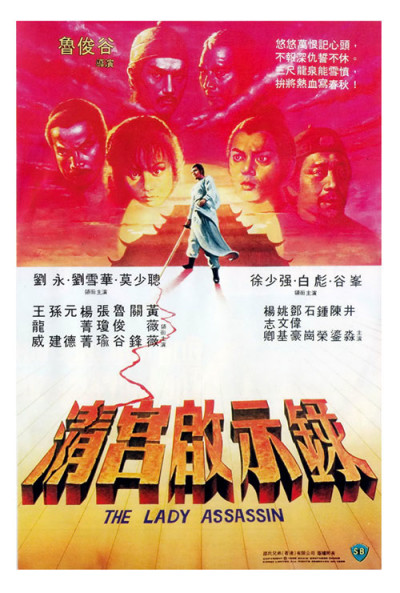★★★½
“Peak women-in-prison.”
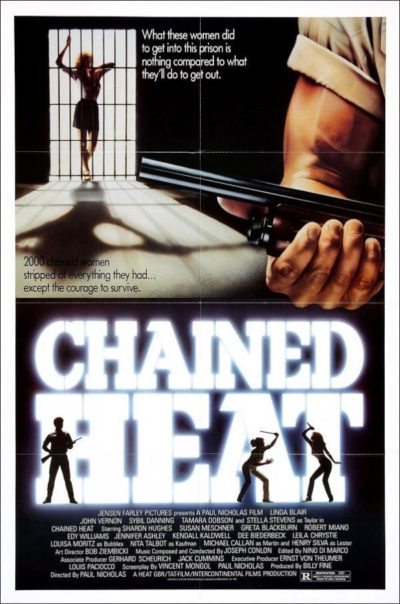
This may not be the best women-in-prison film, but it’s pretty much iconic. It certainly stamped the template from which almost all would follow. Carol Henderson (Blair) is sentenced to a relatively short 18 months in prison, for her involvement in a fatal car accident, only to find life on the inside is far, far harder than expected. Hazards to be navigated include those on both sides of the bars. There’s the predatory and drug-running warden (Vernon), who has a jacuzzi in his office – bit of a warning sign that. Then there’s his assistant Captain Taylor (Stevens), who is pimping out inmates with the help of Lester (Henry Silva). Meanwhile, a race war is about to break out among the inmates, between the groups led by Ericka (Danning) and Duchess (Tamara Dobson), with Carol caught in the middle.
It’s a stellar cast for an exploitation movie, also including the former Mrs. Russ Meyer, Edy Williams, and the insanely hot Monique Gabrielle as the first inmate to frolic with the warden in his watery play-pen, despite him being more than 30 years older. The nudity is copious, frequent and more explicit than you might expect, especially if you find an uncut version. There is at least one scene of sexual assault which even I found made for uncomfortable viewing. I’d prefer to have had more of the struggle for power between Ericka and Duchess, which is a lot of fun to watch, both women having screen presence to spare.
In comparison, Blair has trouble standing out, choosing to underplay her role, when all around her are going in the opposite direction. This is where the “pinky violence” films from Japan stand out, with their heroines who are prepared to do whatever it takes to survive, and defeat those who stand in their way. Carol doesn’t get there until the very end, if at all, eventually brokering a rather unlikely alliance that sees Ericka join forces with Duchess, when they realize Taylor is the real enemy, rather than each other. Even more unlikely is the way Carol comes into possession of a convenient videotape, implicating Taylor and her crony in murder.
Still, if you are here for the plot, you may have strolled into the wrong review. Blair may have had her regrets, the IMDb saying she “stripped naked because she felt she had no choice.” That seems like a “you” problem, Linda. I’m fairly sure the rest of the cast had no such qualms and, as noted above, she’s likely the weakest link in the characters anyway. Even though it’s twenty minutes before Carol gets through processing and into her cell, it is fairly consistently entertaining, albeit not necessarily for the right reasons, and will likely open your eyes to the important cause of women’s penal reform. Or perhaps just cause you to question certain elements of security procedures in this particular prison. They don’t make ’em like this anymore; especially not with this cast.
Dir: Paul Nicholas
Star: Linda Blair, Stella Stevens, John Vernon, Sybil Danning





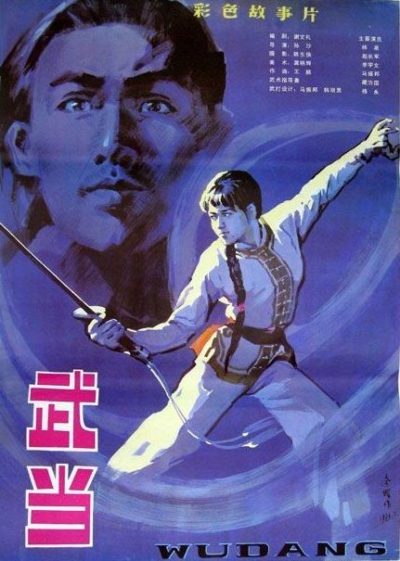 Chinese kung-fu movies took off in the early eighties, after the success of Shaolin Temple, starring an unknown teenager called Jet Li. Over the years that followed, a slew of imitators followed, with varying success. Where these largely differed from their Hong Kong counterparts, were in a more grounded approach to combat: wire-work and trampolines were avoided, in favour of players who (like Li) were martial artists first, and actors second. I believe the same is true of the heroine here, though information about Lin is hard to come by. According to the IMDb, this was her acting debut, though it’s tricky to grade her work there, thanks to the rather clunky dubbing on the print viewed for this review.
Chinese kung-fu movies took off in the early eighties, after the success of Shaolin Temple, starring an unknown teenager called Jet Li. Over the years that followed, a slew of imitators followed, with varying success. Where these largely differed from their Hong Kong counterparts, were in a more grounded approach to combat: wire-work and trampolines were avoided, in favour of players who (like Li) were martial artists first, and actors second. I believe the same is true of the heroine here, though information about Lin is hard to come by. According to the IMDb, this was her acting debut, though it’s tricky to grade her work there, thanks to the rather clunky dubbing on the print viewed for this review.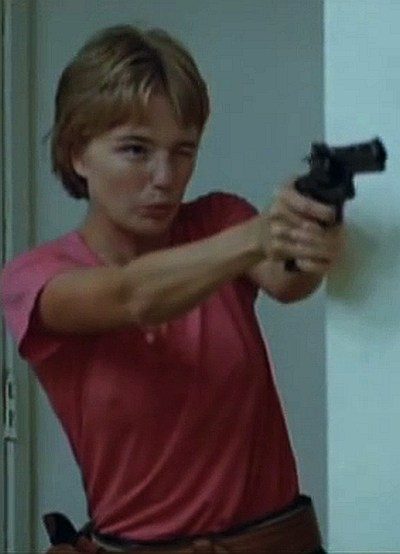 Either by intent or accidentally – and we’ll get to that in a moment – this manages to be both an indictment of and an advert for, American gun culture. That’s quite a spectacular achievement, and it’s perhaps no coincidence that the writer/director is British, so brings an outsider’s balanced eye to a topic that’s often acrimonious in the States. Kathleen Sullivan (Young) is a teacher who has just moved from Boston to a small Texas town. She falls for local attorney Larry Keeler (Day), though is only interested in friendship, not a significant relationship. The initially-charming Larry eventually won’t take no for an answer, and date-rapes Kathleen. However, the circumstances and her attacker’s local reputation mean she gets no satisfaction from the police. The meek and mild Kathleen decides to take matters into her own hands, buying a gun and taking up combat shooting – at the very same club Larry frequents – with the aim of meting out her own brand of justice.
Either by intent or accidentally – and we’ll get to that in a moment – this manages to be both an indictment of and an advert for, American gun culture. That’s quite a spectacular achievement, and it’s perhaps no coincidence that the writer/director is British, so brings an outsider’s balanced eye to a topic that’s often acrimonious in the States. Kathleen Sullivan (Young) is a teacher who has just moved from Boston to a small Texas town. She falls for local attorney Larry Keeler (Day), though is only interested in friendship, not a significant relationship. The initially-charming Larry eventually won’t take no for an answer, and date-rapes Kathleen. However, the circumstances and her attacker’s local reputation mean she gets no satisfaction from the police. The meek and mild Kathleen decides to take matters into her own hands, buying a gun and taking up combat shooting – at the very same club Larry frequents – with the aim of meting out her own brand of justice.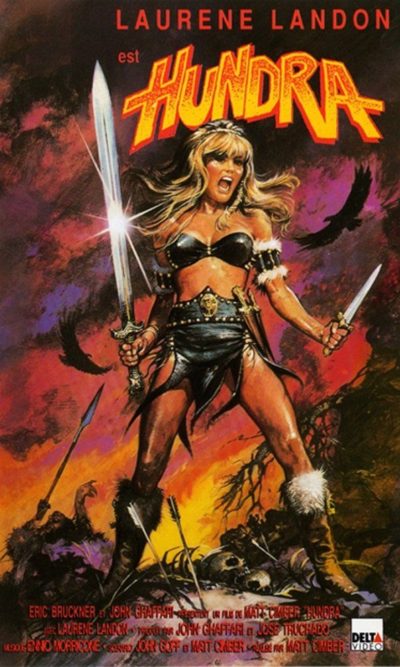 Director Cimber seems always to have had an interest in the action-heroine genre, having previously directed Lady Cocoa, he’d go on to do Yellow Hair and the Fortress of Gold , also starring Landon, and work on Gorgeous Ladies of Wrestling. But this was likely his best work, a rather inspired Conan knock-off, which both predates and is significantly better than Red Sonja.
Director Cimber seems always to have had an interest in the action-heroine genre, having previously directed Lady Cocoa, he’d go on to do Yellow Hair and the Fortress of Gold , also starring Landon, and work on Gorgeous Ladies of Wrestling. But this was likely his best work, a rather inspired Conan knock-off, which both predates and is significantly better than Red Sonja.





